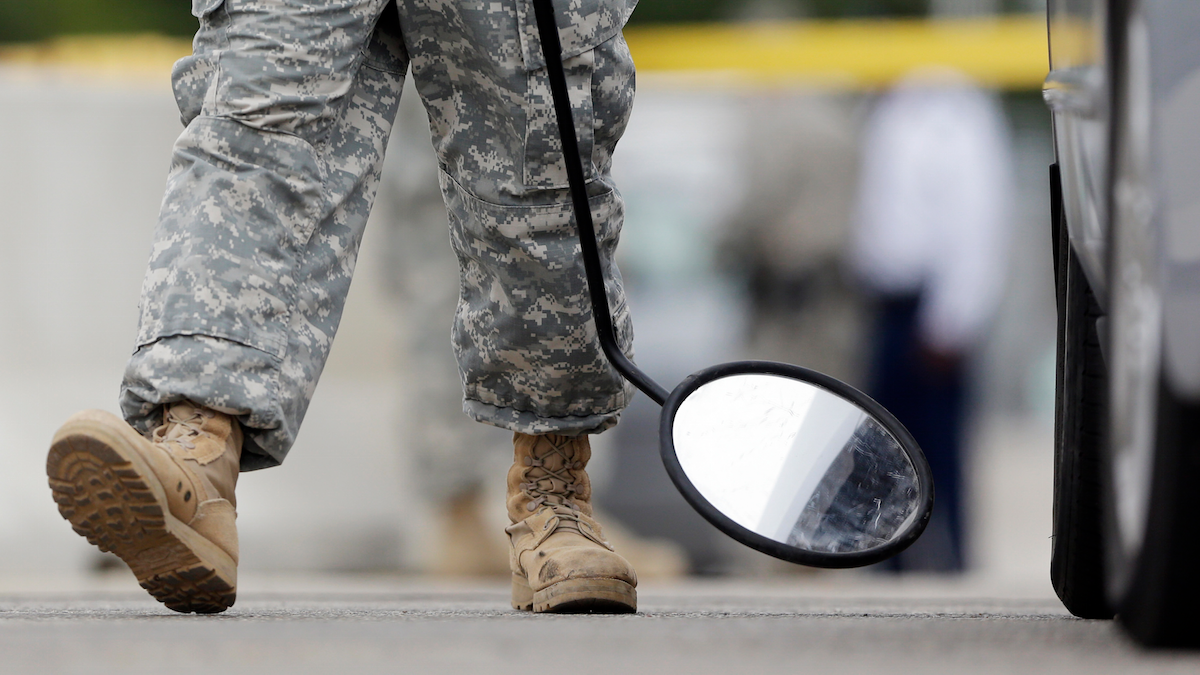When it comes to mass shootings, there are things we can and can’t control

After Monday’s rampage at the Washington Naval Yard, Defense Secretary has ordered a review of base security worldwide and the issuing of security clearances that allow access to them, vowing: "Where there are gaps, we will close them." (AP Photo/Eric Gay, File)
The latest mass shooting, in which 34-year-old Aaron Alexis, a former Navy reservist and current military contractor, killed 12 people and injured more than a dozen more before being killed by police, has not renewed calls for gun control, and that’s no surprise.
Gun-control advocates realize that if the murders of 20 children in Newtown, Conn., couldn’t move legislators who are beholden to the gun lobby, nothing else can. That’s the reality we face. We know that now.
But the trouble we’re dealing with is much bigger than any legislator. It’s stronger than the National Rifle Association, the organization whose fundraising prowess and political weight have made it all but impossible to put needed, common-sense restrictions on guns.
Exercising control
While I firmly believe that part of our solution lies in gun control, I also believe that the bigger issue is self-control.
I’m not advocating self-control for the perpetrators of the mass shootings. Clearly, these men — many of whom are in need of serious psychiatric help — lack self-control. I’m advocating self-control for the rest of us.
You see, I’ve learned over time that it’s much more difficult to control other people’s actions than it is to govern one’s own.
We can’t stop shooters from firing that first bullet in the moment their finger is tightening on the trigger. We can’t stop them in that split second before the bullet leaves the chamber. Quite often, we can’t stop them until they’ve paused to reload.
But if we exercise the kind of self-control that says, “I will act when I see someone who is in need of mental health care,” perhaps we can stop these rampages before they ever begin.
Stay alert
More often than not, our apathy is our greatest enemy. In a country where even the poorest among us are well fed and sheltered, we have become too lax, too unaware and too uninvolved in the lives of those around us.
It’s as if we just float along on the tide of ease, watching as things and people spiral out of control. And, rather than taking action, we take breaks. We take vacations. We take advantage. We take everything but the initiative, because we live in a society in which everything is someone else’s problem.
But it’s clear now that mass shootings are not someone else’s problem.
Mass shootings are everyone’s problem, so as we examine the motives behind yet another of these tragedies, perhaps we should also take a moment to examine ourselves.
Why?
Because legislators are not going to save us with gun-control legislation.
Gun stores are not going to save us by refusing to sell their products to the mentally ill.
The NRA is not going to suddenly put people before profits.
The underfunded mental-health system is not going to suddenly gain the resources it needs.
The only thing that can save us from the next mass shooting is our own vigilance.
We can control whether we contact the proper authorities when we see someone who is obviously mentally ill and dangerous.
We can control whether we follow up on the call.
We can control whether we shed light on the problem of mental illness.
We can control whether we report suspicious activity before the first bullet flies.
These are the things we can control, so let’s control them, and let’s do so before the next shooting takes place.
Talking about it afterward makes no difference.
WHYY is your source for fact-based, in-depth journalism and information. As a nonprofit organization, we rely on financial support from readers like you. Please give today.


